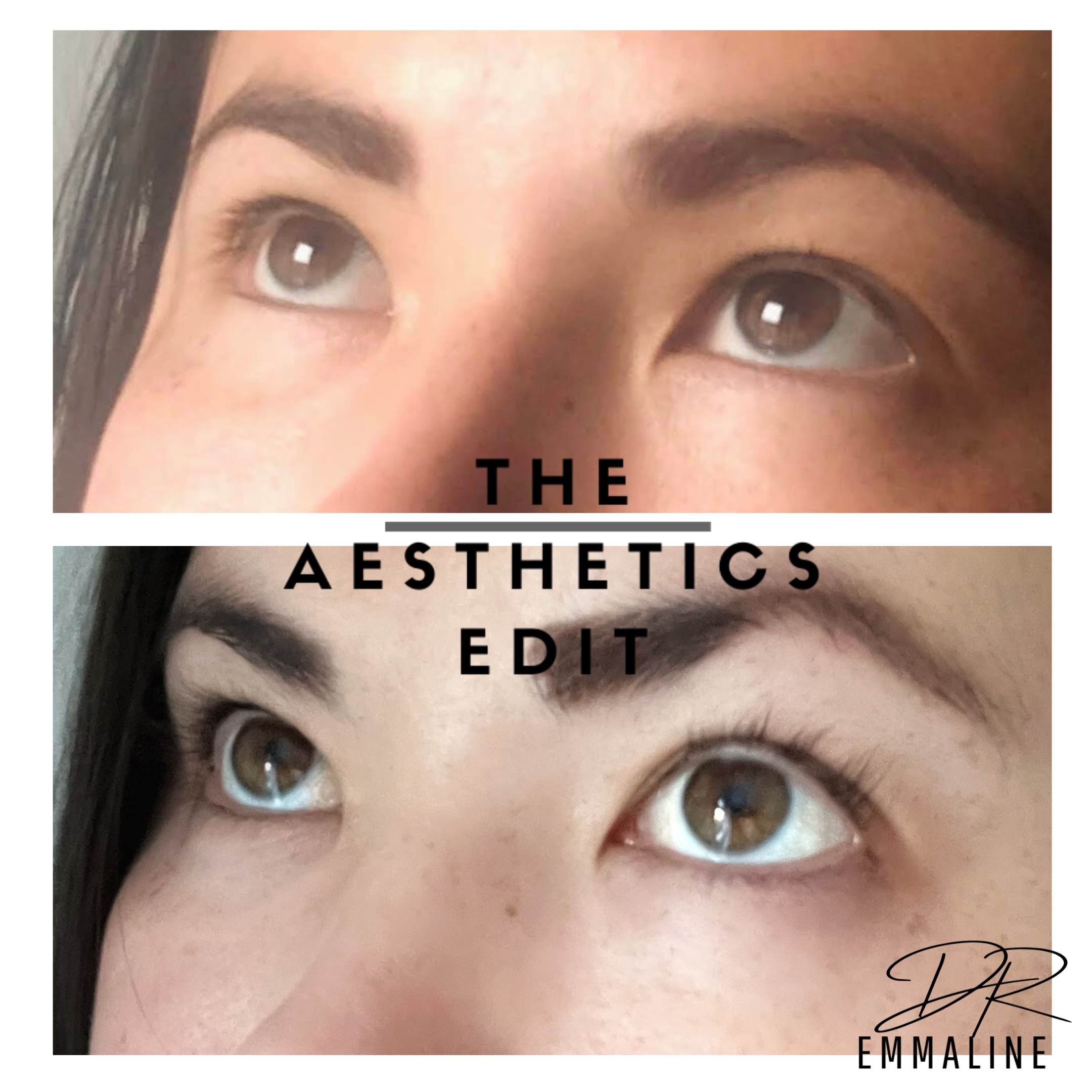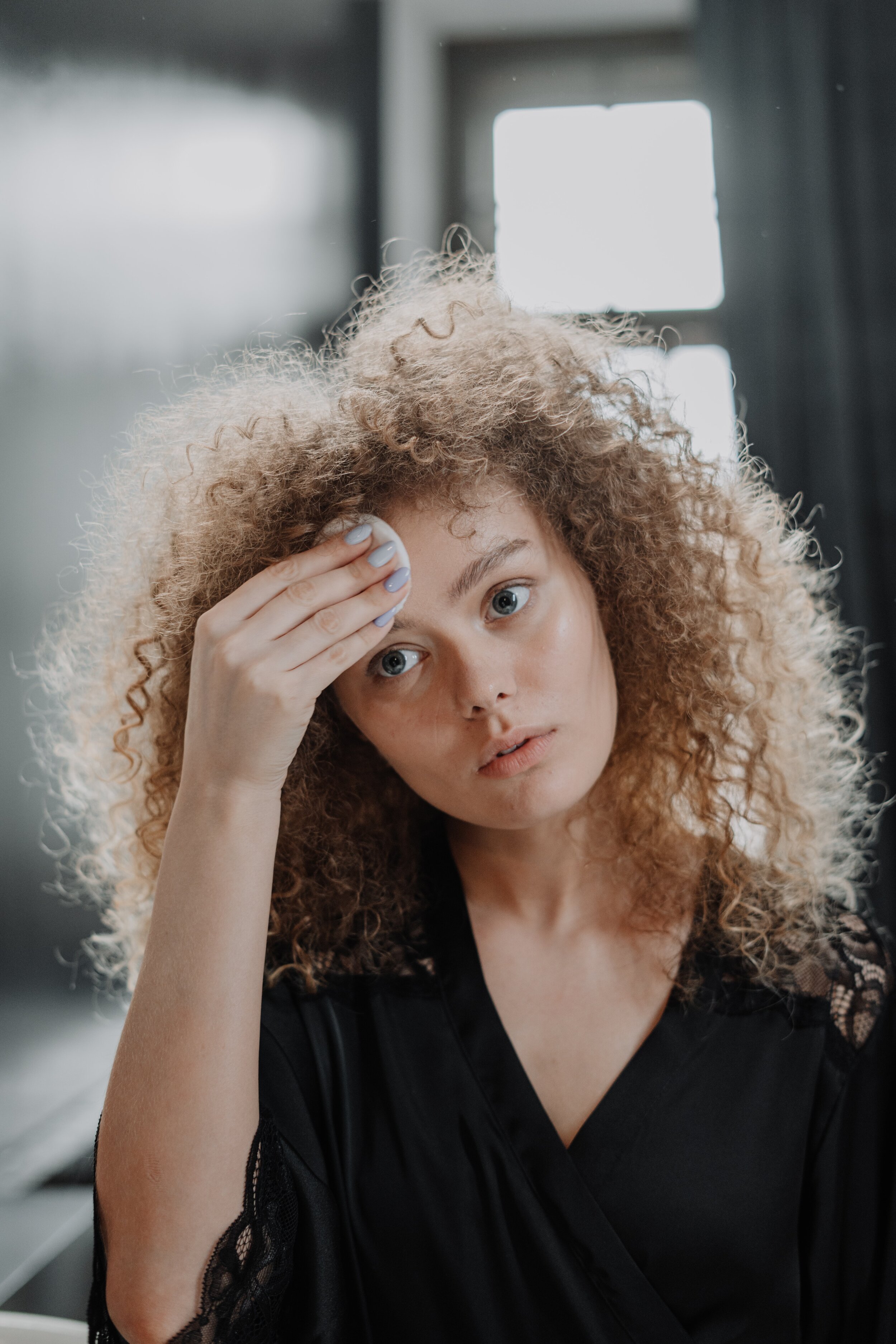
Welcome to The Aesthetics Edit™ - our educational platform at the intersection of art, beauty, medicine and science.
Explore by category and read our latest articles below,
or see a full list of all of our pieces here

Why Aesthetics Should be Medical, NOT a Beauty Trend
It shouldn’t be complicated or controversial to say that a medical specialty should be medical. Unfortunately, in this case, it sometimes is.
Aesthetic medicine is exactly that - a medical specialty. Unfortunately, lack of regulation in the UK has trivialised this specialty, and while it clearly is related to beauty, it is vitally important that it is understood to be completely distinct and separate from beauty. Medical aesthetics treatments are NOT beauty treatments.
Beauty treatments, make-up, fashion - these all follow trends that are influenced by place, time, and culture.
Medical treatments should not be based on trends.

Long, Long Lashes: Do Eyelash Serums Really Work?
Raise your hands if you were born cursed with short, stubby lashes?
That is definitely me.
I also approached eyelash serums with a healthy dose of skepticism - and to be honest, that skepticism is well-deserved in most cases.
However, there are genuinely eyelash growth serums that do work. They are prescription medications containing prostaglandins, and should only be available to you after a medical consultation with a prescribing doctor. But there is some controversy about the safety of such serums in the long-term.
So let’s delve into the science behind them.

The Rise of “Instagram Face”
The concept of “Instagram face” is not a new one, but has received more recent attention as Meta has banned filters that encourage plastic surgery. Awareness of the role that social media and photo editing plays in aesthetic medicine is incredibly important for both clinicians and patients. The influence of social media can be incredibly negative, and it means it’s more important than ever to navigate between good, ethical medical practice versus “selling” cosmetic procedures.

“Fox Eyes:” My Eyes Are Not Your Beauty Trend
The first second I saw #foxeye trending, an instant little curl of disgust went through me. Whether it was through posing, make-up, or thread lifts, I was bombarded with image after image of mostly white women pulling up and slanting their eyes as if it were a fashion statement.
Some of my earliest memories from school are of fellow students pulling up their eyes in the same gesture towards me - this time not as a beauty trend but as a taunt and insult.

Feminism and Cosmetic Medicine
Are feminism and cosmetic medicine mutually exclusive concepts? Does having an interest in aesthetics involve tangling ourselves into knots to try reconcile two fundamentally opposed ideas? Are we shrinking ourselves to match society’s concepts of beauty and youth because (somehow) we don’t know any better?
I’m going to say the answer is, “No.”
Now let’s look at why.

Turn That Frown Upside Down: Can Botox Help Depression?
It comes as no surprise to hear that cosmetic medicine and psychology are interconnected, and that medical aesthetic treatments have the ability to have a dramatic effect - both positive and negative - on our mental health.
While a lot of the focus in this area is around serious issues like body dysmorphia, which highlights the importance of always going to an ethical medical professional who has the competence of diagnose and manage complex health issues - it is also worthwhile looking at the positive mental health effects this treatment can have.
One of the areas that I find the most fascinating is the role that Botox treatments have in depression. Early research is strongly indicating that Botox improves the symptoms of depression! So what do the studies show, and how does this work?

Cleopatra Metrodora: The First Female Cosmetic Surgeon in the Ancient World
Cleopatra Metrodora is an incredible and fascinating figure from the ancient world: an example of one of the first ever female physicians in a time where men absolutely dominated the scientific and medical landscape.
While she focused her surgical procedures on women’s health issues, mostly in the field of obstetrics and gynaecology, she also pioneered the first documented instances of cosmetic surgery in women.

The Beautiful History of Aesthetic Medicine
The desire to improve our appearance and to pursue a certain ideal of beauty has existed for as long as human history has been recorded. As I’ve written before, the history of aesthetic medicine is firmly ensconced in the history of plastic surgery, so you will find traces of that throughout this article.
Join us for a wonderful, whirlwind tour through the history of aesthetic medicine - from the ancient world to the modern day.

5 Completely Unexpected Reasons I Fell in Love with Aesthetic Medicine
It’s no secret at this point that I am incredibly passionate about medical aesthetics. But what began as an off-shoot of my interest in plastic surgery has grown into the favourite and most treasured aspect of my medical practice. But when I think about what parts of it I’ve fallen in love with, the answers surprised me.

Which Cosmetic Treatments and Skincare Ingredients are Safe in Pregnancy?
Pregnancy is such an exciting and beautiful time in a woman’s life, but it can also be confusing and scary to navigate all of the sudden rule changes about what you can and cannot do. We want to look after ourselves and the baby as well as possible - and for many women a huge part of self-care can often involve medical aesthetic treatments and our beloved skincare routines.
But things do change during pregnancy and breastfeeding, and there are some cosmetic treatments that are better to avoid. Want to understand why you can have one treatment and not another? Read to find out!

COVID-19 and Your Hair: How to deal with post-viral hair loss
Let’s talk about COVID-19 and hair loss. This is something that has affected quite a few people, but it is not a problem that is well-known. As we are recovering from the pandemic, there may be patients who are finding themselves suffering from sudden unexplained hair loss after having recovered from COVID months ago!
What is Happening? It is a condition known as acute telogen effluvium. Telogen effluvium is a very common cause of increased hair loss.

The Problem with the “Wellness” Industry
Aesthetic medicine and concepts of wellness tend to go hand-in-hand, and that is something that I personally love. But more and more, it’s also something that I have seen as inherently dangerous as well - something that can breed pseudoscience, and where selling and marketing are prioritised over patient health.
This rhetoric that some of these companies have somehow discovered a secret that big pharma and greedy doctors don’t want you to know is is toxic and damaging. The issue is with this constant chipping away at professionals, at education, at research. Let me be clear - the messaging can be really dangerous and really unethical.

Hair in Cosmetic Medicine
Aesthetic medicine as a field encompasses so many things. In New Zealand, this specialty is called “Appearance Medicine,” and when you think of appearance the first things that comes to mind are probably your skin, teeth, and hair.
Beyond its biological functions, hair plays such an important role in both our psychology and well-being, as well as in how we perceive others socially.
So let’s learn some of the basic biology behind our hair to see how amazing it is, and explore the world of hair in cosmetic medicine.

Ethics in Aesthetic Medicine
This article is geared towards other medical professionals, and is a brief reflection on the ethics of cosmetic medicine, through the guiding four principles of medical ethics.
Understanding aesthetic medicine in relation to its ethical context begins with appreciating the complexity inherent within it.

The Top Online Resources When You’re Starting in Aesthetic Medicine
Are you thinking about branching into the world of private aesthetic medicine, and not sure where to start? You’re not alone.
Because the aesthetics industry in the UK is highly unregulated, and as there are no clear-cut training pathways, it can be difficult to know where to begin. After all, even though (sadly) the rules aren’t strict, we still have obligations as medical professionals to adhere to our own strict standards and professionalism.
While nothing beats hands-on training and practical skills, this also has to be backed up by knowledge. And not only by knowledge of the science, anatomy, and medicine behind aesthetics, but also of the industry and business as a whole.
To that end, I’ve put together some of the resources that I found the most helpful when I started my aesthetics journey - and still use again and again!












The concept of “Instagram face” is not a new one, but has received more recent attention as Meta has banned filters that encourage plastic surgery. Awareness of the role that social media and photo editing plays in aesthetic medicine is incredibly important for both clinicians and patients. The influence of social media can be incredibly negative, and it means it’s more important than ever to navigate between good, ethical medical practice versus “selling” cosmetic procedures.